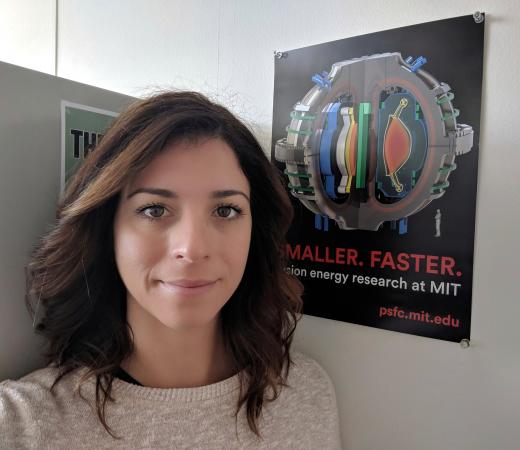
Cristina Rea
Cristina Rea
Plasma Science and Fusion Center
Friday, March 19, 2021
10:00am
Remote
Abstract: Data-driven algorithms are pervasively assisting and accelerating fusion research. The availability of a huge amount of experimental data for many different existing fusion devices opens up the possibility of investigating phenomena for which no encompassing first-principle models exist, like disruptions. Intended as the final loss of plasma control, disruptions pose a serious threat to next-generation tokamaks and future reactors. Machine learning algorithms can be used to reliably trigger the mitigation system, if enough warning time for an impending disruption is provided.
Nevertheless, a certain class of predictive algorithms are currently being tested in real-time plasma control systems (PCS) to continuously monitor the plasma state and actively prevent disruptions. As an example, the Disruption Prediction via Random Forest (DPRF) algorithm is currently integrated in both DIII-D and EAST PCS. DPRF quantifies in real-time the plasma’s proximity to an unstable operational space, while simultaneously identifying the drivers of the instability through local measures of interpretability. Results from recent experiments at DIII-D and EAST will be discussed, to see how interpretable machine learning algorithms can help regulate plasma stability and performance.
Bio: Cristina is a PSFC Research Scientist, working on disruptions in tokamak plasmas with a focus on predictive modeling that integrates machine learning algorithms with plasma control systems. She is currently based at DIII-D, working offsite with the PSFC disruptions team, on the analysis of DIII-D, Alcator C-Mod, and EAST data. Cristina is also leading the PSFC Machine Learning working group to foster the dissemination of different machine learning applications to fusion plasma.